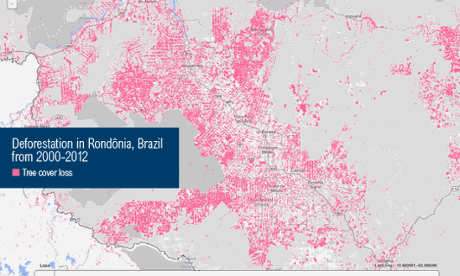
To protect the future of our forests, we all need to get involved. Until recently, environmental groups and government agencies were bearing the brunt of this task, but in recent years, well known corporations have launched initiatives and implemented policies to promote responsible forest management. Here are three companies doing their part.
Apple buys 36,000 acres of private forestland
In partnership with the Conservation Fund, Apple recently purchased 36,000 acres of private forestland in Maine and North Carolina. The company plans to sustainably harvest the land while also protecting wetlands, rivers, savannas and other vital animal habitats. Apple will utilize the ‘working forest’ model to ensure long term economic stability for the forests, protecting them from the threat of development or conversion to residential and commercial uses.
The purchase supports Apple’s broader goal of sourcing 100% of its paper packaging from renewable resources. Although this goal sounds lofty, Apple has a multi-faceted approach to achieving it: improving paper use efficiency, increasing recycled paper content, sustainably sourcing paper and conserving working forests around the world equivalent to its virgin paper footprint.
McDonald’s cuts deforestation from its supply chain
Recently, McDonald’s announced that it will begin to work with suppliers to eradicate deforestation from its global supply chain. This pledge has significance beyond McDonald’s alone, as the World Wildlife Fund (WWF) predicted that it could influence other fast food chains to follow suit.
McDonald’s engagement with this issue is noteworthy because of its size and scale. In fact, this decision will affect their 3,100 global direct suppliers and the network of indirect suppliers, with the potential to bring about a great improvement in terms of sustainable forest management around the world.
Google-powered map helps fight deforestation
Global Forest Watch (GFW) is a nonprofit organization that helps governments, NGOs and corporations monitor the state of the world’s forests via satellite technology. GFW provides up-to-date data on deforestation, allowing users to track changes in forest cover over time.

The GFW map was built by Google engineers, and the tech giant also provides computing power and storage for the environmental startup. The platform enlists the help of big data, crowd sourcing and cloud computing, which only recently became available in remote regions of the world where much of the global deforestation occurs. Overall, the technology fulfills a serious need, as previous information about forest cover was often outdated, making timely action nearly impossible.
Who else?
From fast food retailers to leading technology companies, multiple industries have recently joined the fight to protect forests – a movement that the North American forest products industry has championed for decades. For example, Domtar, which operates 13 pulp and paper mills across the US and Canada, has long supported chain-of-custody certification as the best way to ensure that forests will be productive for generations to come. The company also has a history of helping small landowners reach the ‘gold standard’ of forest management, taking care to protect and preserve local economies, animal habitat, water quality and more.
Regardless of the industry, one thing remains clear: to truly protect forests, we need to work together to develop solutions to address disparate problems all around the world, with an eye toward the future.
Content on this page is provided by Domtar, supporter of the Vital Signs platform.

.jpg?w=600)





